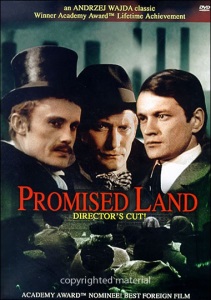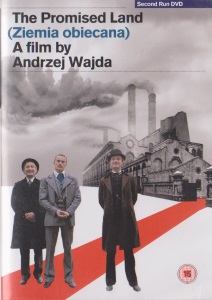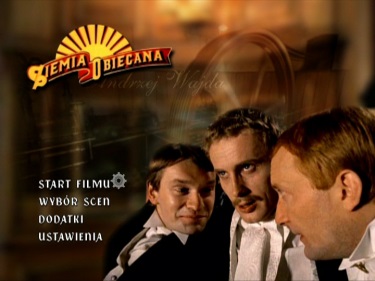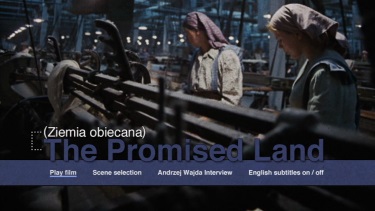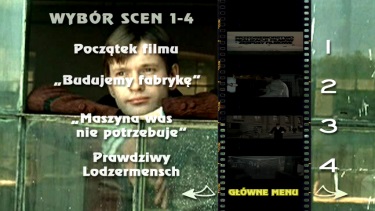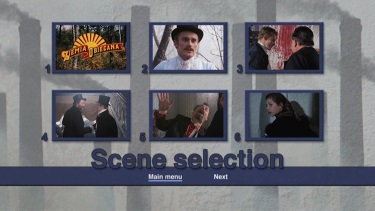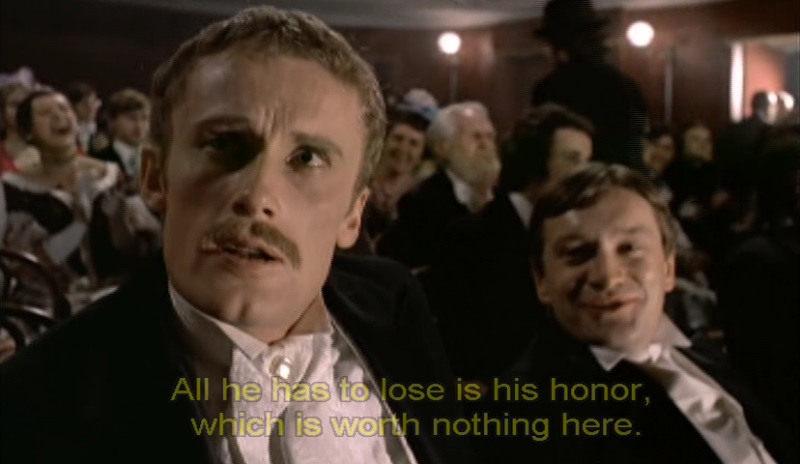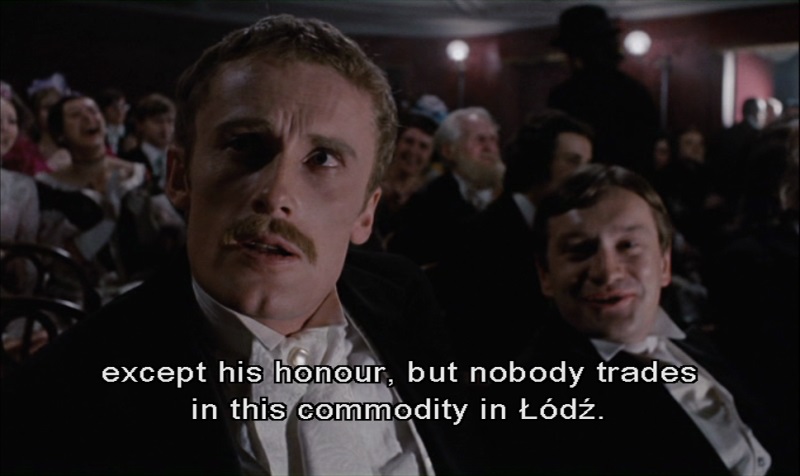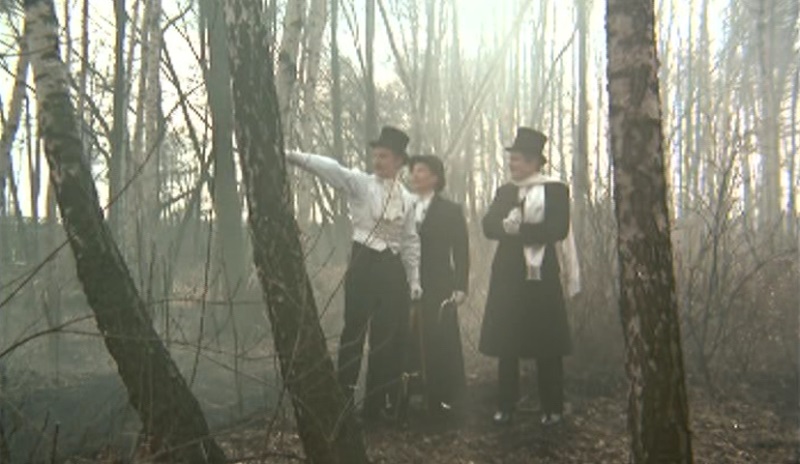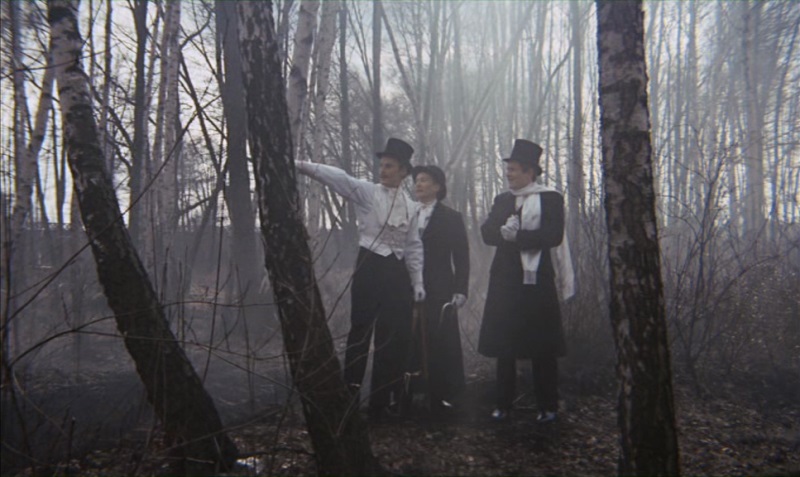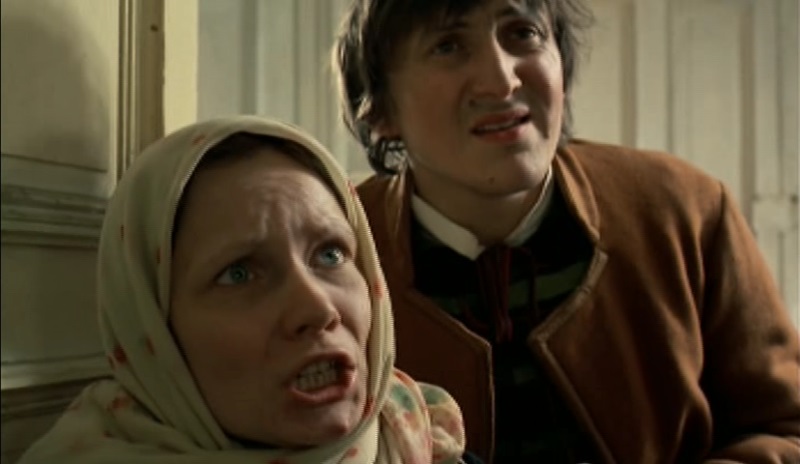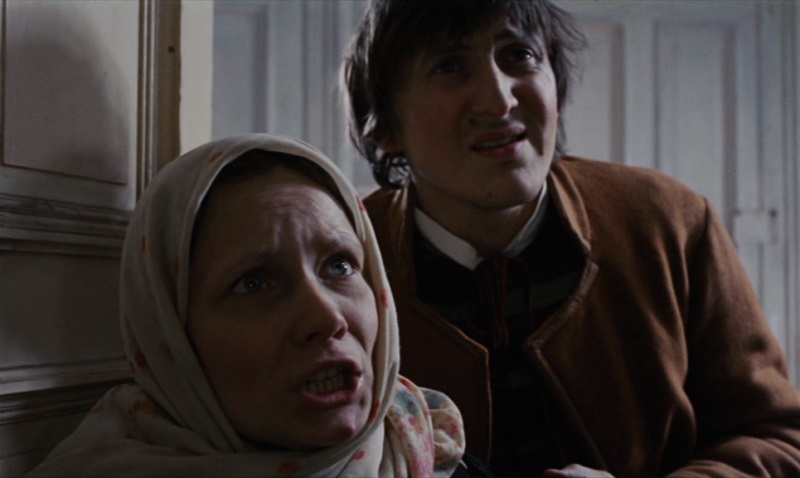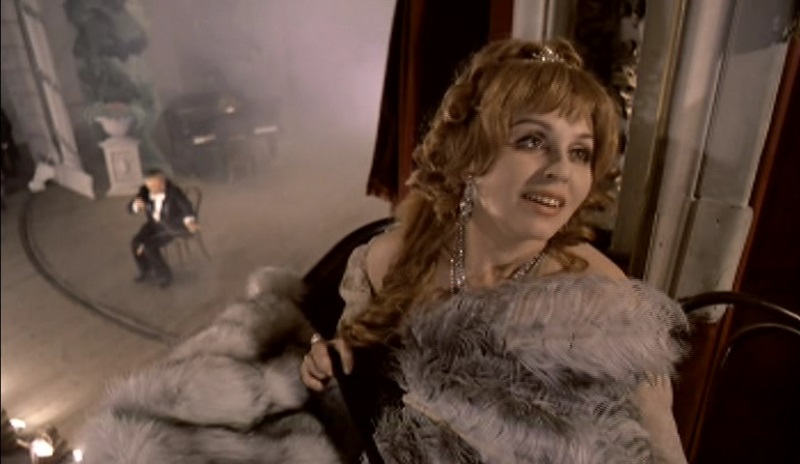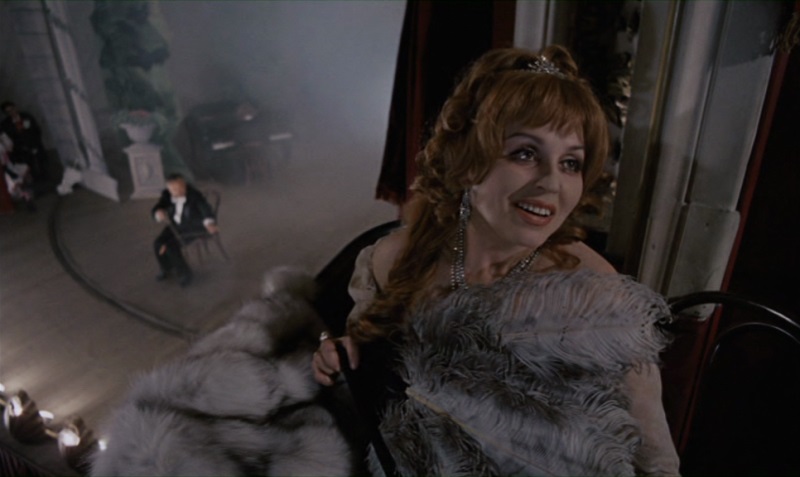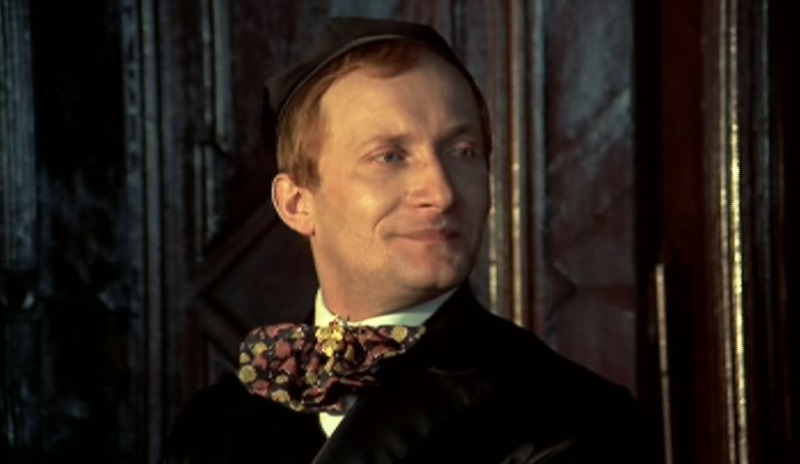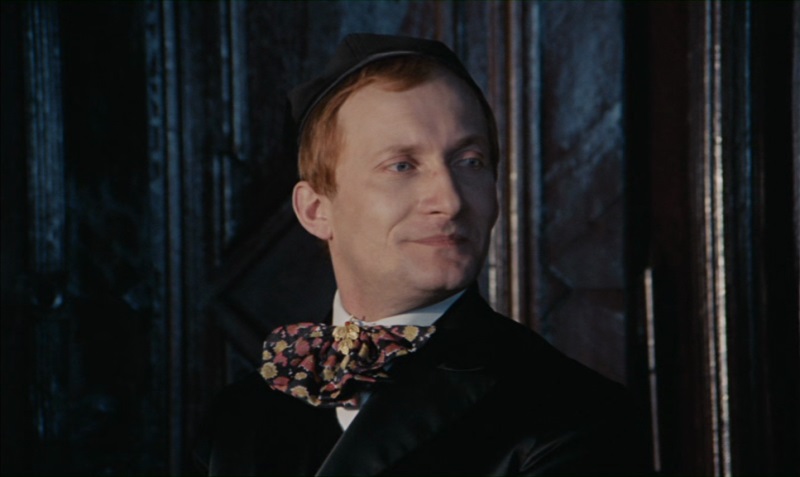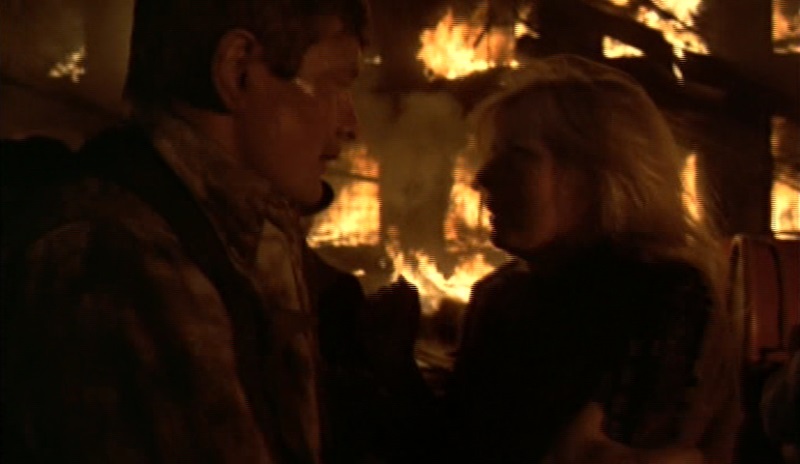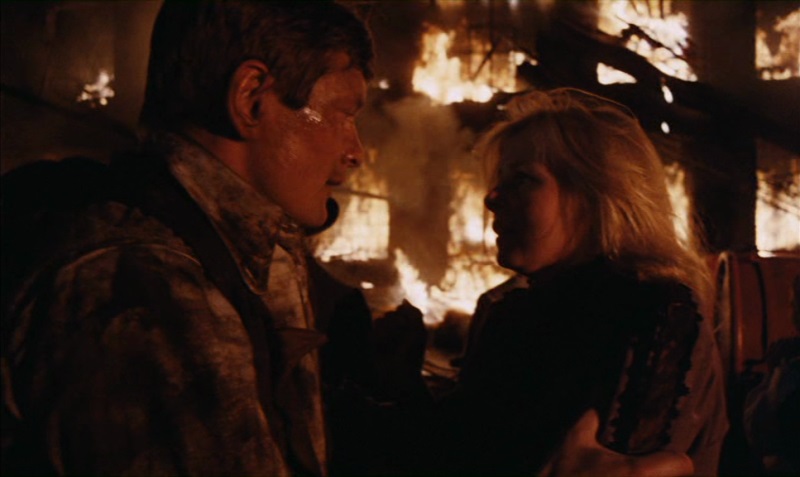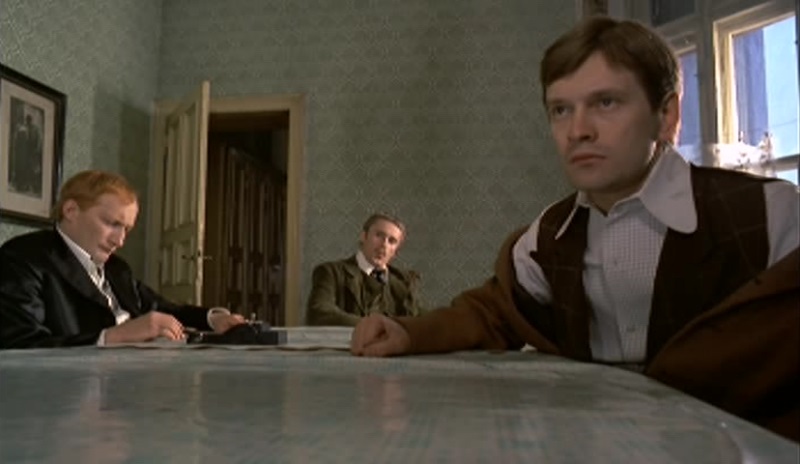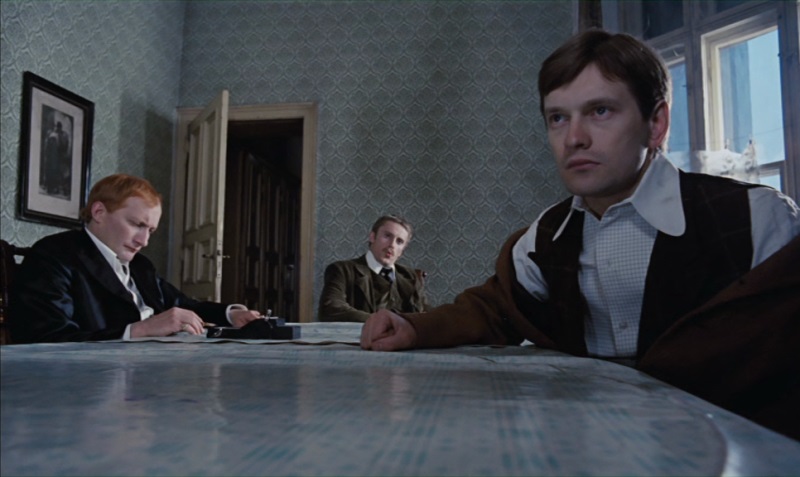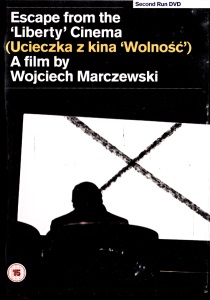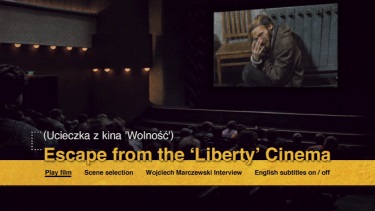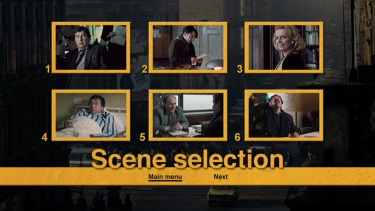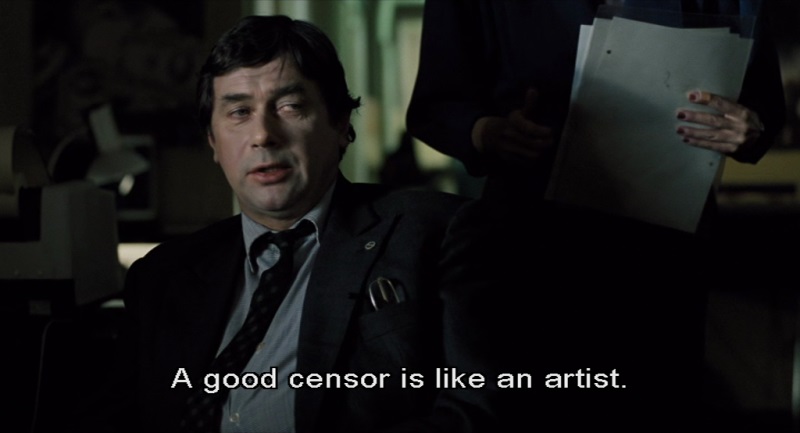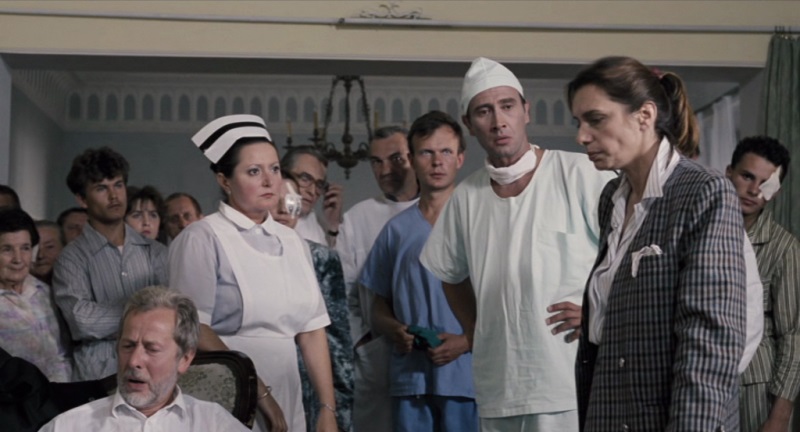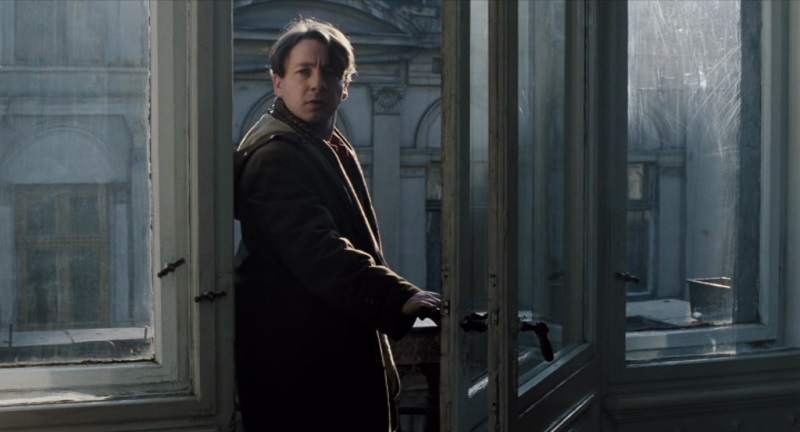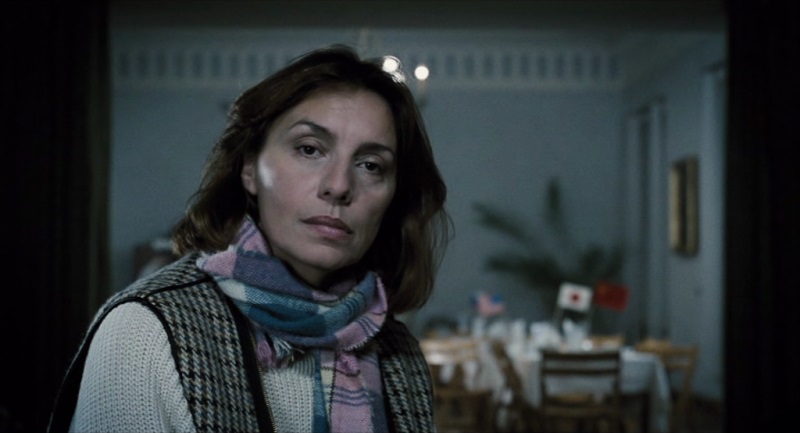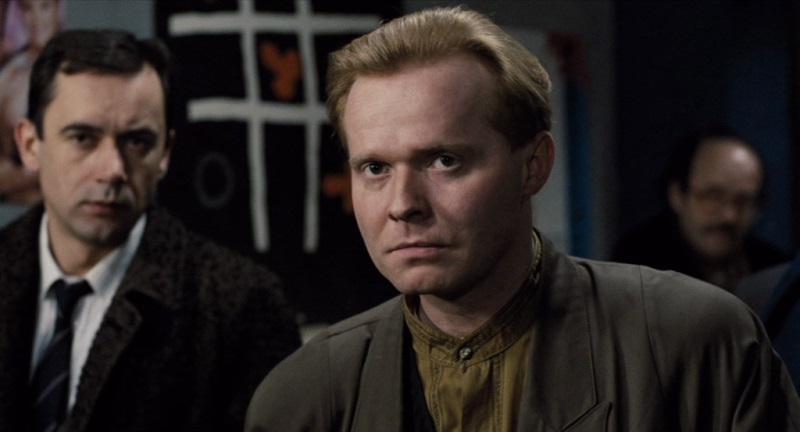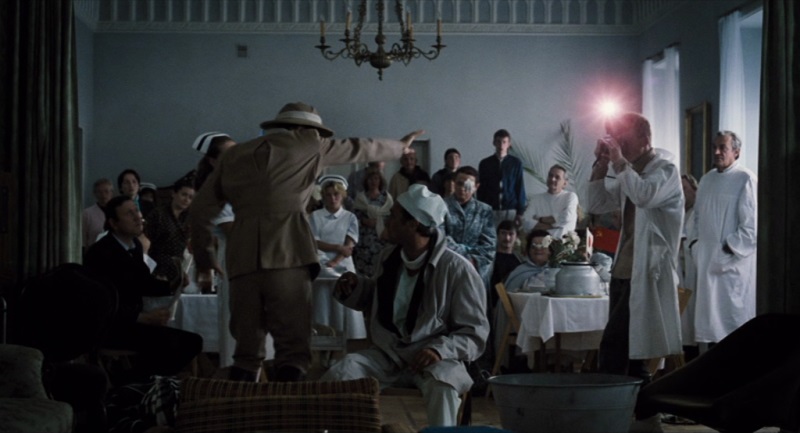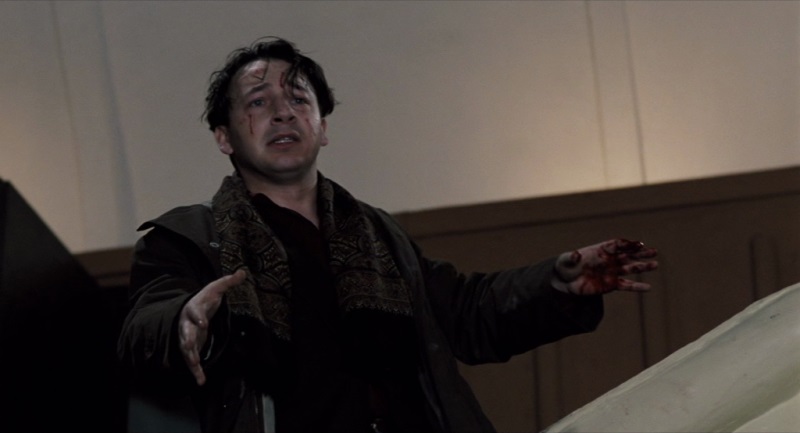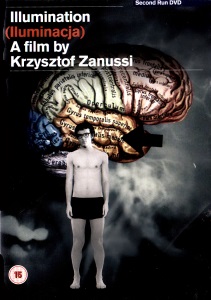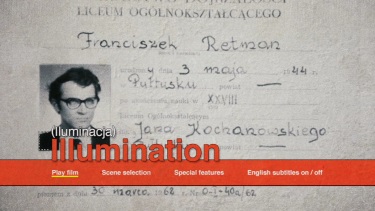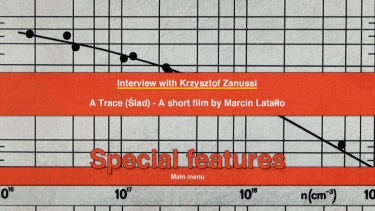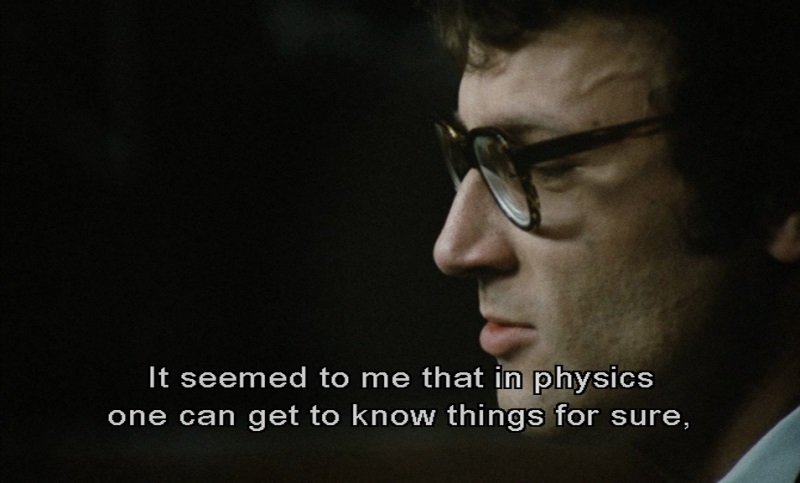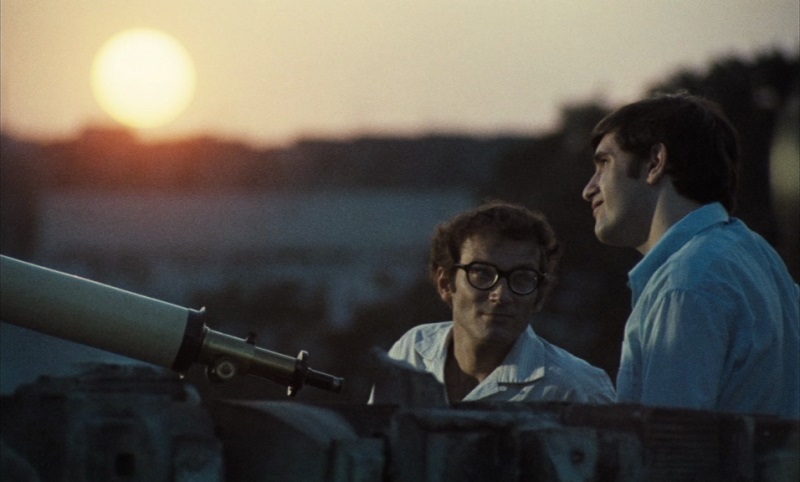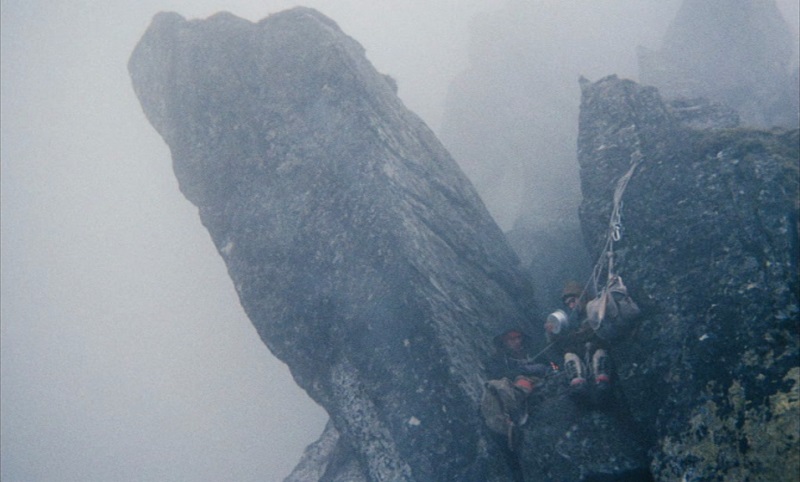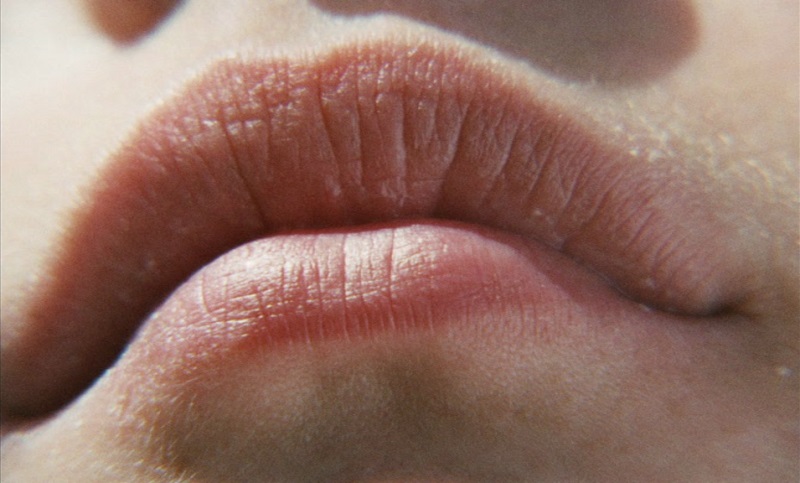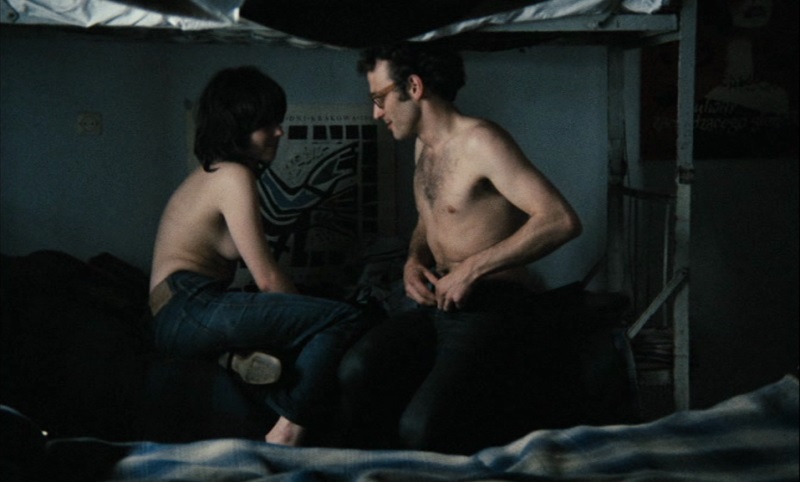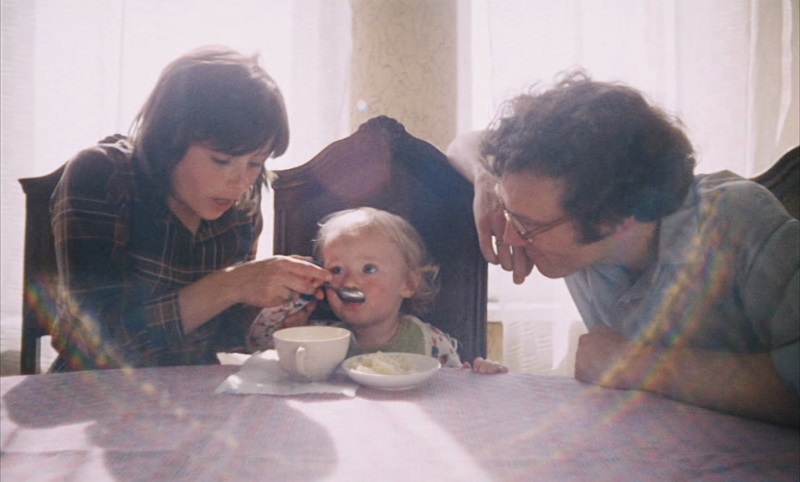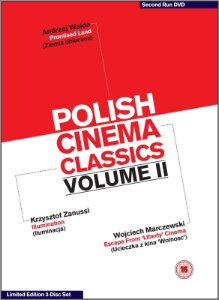![]()
![]()

![]()
![]()
|
Search DVDBeaver |
S E A R C H D V D B e a v e r |
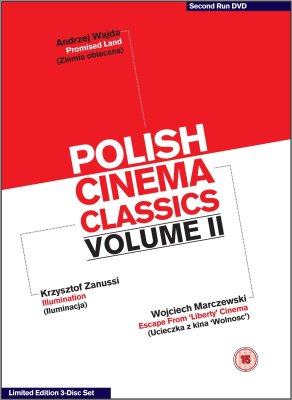 |
Polish Cinema Classics Volume II
Promised Land (1974) Illumination (1973)
Escape From Liberty Cinema (1990)
| A second volume of our acclaimed series. Second
Run DVD proudly presents three celebrated works of Polish Cinema,
now fully restored and released for the first time ever in the UK. Andrzej Wajda PROMISED LAND (Ziemia obiecana, 1974) Voted the best film in the history of Polish cinema in the monthly Polish magazine FILM, Wajda's Oscar-nominated epic Promised Land is a wry, incisive, shocking and elegantly realised Dickensian tale of greed, human cruelty, exploitation and betrayal. Krzysztof Zanussi - ILLUMINATION (Iluminacja, 1973) Zanussi's philosophical/scientific exploration of man's place in the world. Illumination serves as an idiosyncratic, engaging, and insightful fusion of science and art, precision and creativity, intellect and emotion. Wojciech Marczewski - ESCAPE FROM 'LIBERTY' CINEMA (Ucieczka z kina 'Wolnosc', 1990) Marczewski's engaging anti-communist satire (with shades of Keaton's Sherlock, Jr. and Woody Allen's The Purple Rose of Cairo) is a darkly comic, complex, allusive and deeply-felt examination of the nature and effects of censorship, directed by one of Poland's leading intellectual - and much censored - filmmakers. |
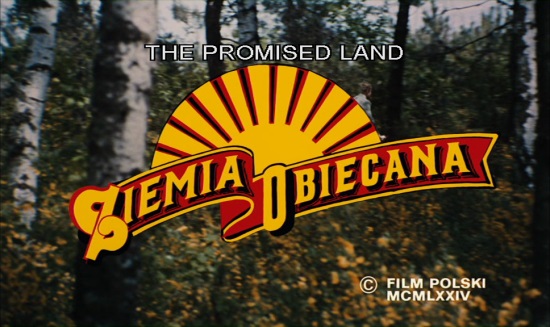
(aka "Ziemia obiecana" )
directed by Andrzej Wajda
Poland 1974
|
Three broke but ambitious young
men to take charge of their own destinies and found their own
textile factory in industrial Lodz. Polish aristocrat Karol
Borowiecki (Daniel Olbrychski,
THE UNBEARABLE LIGHTNESS OF BEING), German son of a
textiles magnate Maks Baum (Andrzej Seweryn, ON THE SILVER
GLOBE), and Jewish money
broker Moryc Welt (Wojciech Pszoniak,
THE TIN DRUM) decide to go in together and found their
own textile factory. The trio outsmart and bankrupt their
competition (who were already self-destructing before they came
on the scene), and withstand tempting offers by others to betray
one another; however, their own arrogance may prove their
undoing. |
Posters
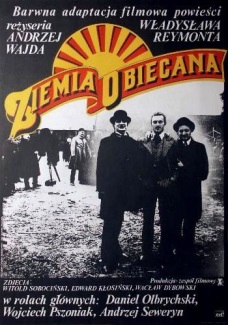 |
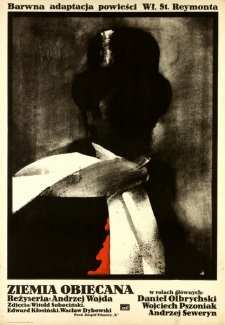 |
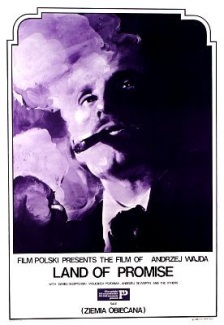 |
Theatrical Release: 21 February 1975 (Poland)
Reviews More Reviews DVD Reviews
DVD Comparison:
Vanguard Cinema (2000 Director's Cut) - Region 1 - NTSC vs. Second Run DVD (Polish Cinema Classics Volume 2) - Region 0 - PAL
Big thanks to Eric Cotenas for all the Screen Caps!
(Vanguard Cinema (2000 Director's Cut) - Region 1 - NTSC - LEFT vs. Second Run DVD (Polish Cinema Classics Volume 2) - Region 0 - PAL - RIGHT)
| DVD Box Covers |
|
|
| Distribution |
Vanguard Cinema Region 1 - NTSC |
Second Run DVD Region 0 - PAL |
| Runtime | 2:18:10 (4% PAL speedup) | 2:42:40 (4% PAL speedup) |
| Video |
1.72:1 Original Aspect Ratio
16X9 enhanced |
1.68:1 Original Aspect Ratio
16X9 enhanced |
|
NOTE: The Vertical axis represents the bits transferred per second. The Horizontal is the time in minutes. |
||
|
Bitrate:
Vanguard Cinema (2000 Director's Cut)
|
|
|
|
Bitrate:
Second Run DVD (Polish Cinema Classics Volume 2)
|
|
|
| Audio | Polish Dolby Digital 5.1 |
Polish Dolby Digital 2.0 mono |
| Subtitles | English, French, German, Spanish, Russian, Polish, Italian, none | English, none |
| Features |
Release Information: Studio: Vanguard Cinema Aspect Ratio:
Edition Details: Chapters 40 |
Release Information: Studio: Second Run DVD Aspect Ratio:
Edition Details:
DVD Release Date: 25 March
2013 Chapters 12 |
| Comments |
Second Run's
dual-layer, HD-mastered transfer is a massive improvement over
the Vanguard disc in terms of picture quality, framing,
translation, and content. The Vanguard disc of the 2000
director's cut (now disavowed by Wajda in favor of the longer
theatrical cut) offers more extras and a remixed (rather than
upmixed) 5.1 soundtrack; however, it's PAL-converted, reframed
(although more than SD anamorphic transfers of 1.66:1 films from
the early 2000s were often reframed at something between the
original aspect ratio and 1.78:1), is often too bright and hazy,
and features an inferior, simplified English subtitle
translation. The low bitrate for the 2+ hour film (however
shortened it is from the original length) also does the Vanguard
encode no favors (although the film is thoughtfully encoded with
40 chapters vs the standard 12 on the UK disc). |
DVD
Menus
(Vanguard Cinema (2000 Director's
Cut) - Region 1 - NTSC - LEFT vs. Second Run DVD (Polish Cinema
Classics Volume 2) - Region 0 - PAL - RIGHT)
|
|
|
|
|
|
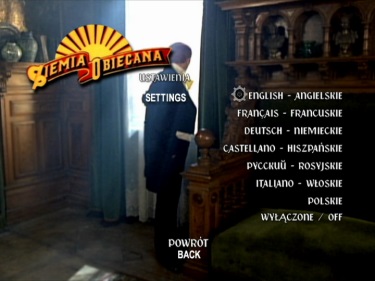 |
|
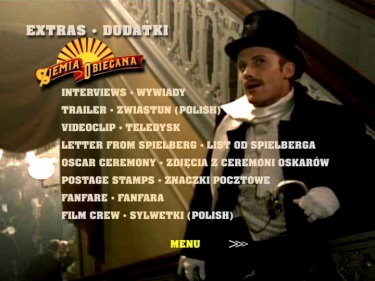 |
|
|
|
Screen Captures
(Vanguard
Cinema (2000 Director's Cut) - Region 1 - NTSC - TOP vs. Second
Run DVD (Polish Cinema Classics Volume 2) - Region 0 - PAL - BOTTOM)
Subtitle sample
|
|
|
|
(Vanguard Cinema (2000 Director's Cut) - Region 1 - NTSC - TOP vs. Second Run DVD (Polish Cinema Classics Volume 2) - Region 0 - PAL - BOTTOM)
|
|
|
|
(Vanguard Cinema (2000 Director's Cut) - Region 1 - NTSC - TOP vs. Second Run DVD (Polish Cinema Classics Volume 2) - Region 0 - PAL - BOTTOM)
|
|
|
|
(Vanguard Cinema (2000 Director's Cut) - Region 1 - NTSC - TOP vs. Second Run DVD (Polish Cinema Classics Volume 2) - Region 0 - PAL - BOTTOM)
|
|
|
|
(Vanguard Cinema (2000 Director's Cut) - Region 1 - NTSC - TOP vs. Second Run DVD (Polish Cinema Classics Volume 2) - Region 0 - PAL - BOTTOM)
|
|
|
|
(Vanguard Cinema (2000 Director's Cut) - Region 1 - NTSC - TOP vs. Second Run DVD (Polish Cinema Classics Volume 2) - Region 0 - PAL - BOTTOM)
|
|
|
|
(Vanguard Cinema (2000 Director's Cut) - Region 1 - NTSC - TOP vs. Second Run DVD (Polish Cinema Classics Volume 2) - Region 0 - PAL - BOTTOM)
|
|
|
|
Report Card:
|
Image: |
Second Run DVD (original cut and image quality) |
|
Sound: |
Draw |
| Extras: | Second Run DVD |
| Menu: | Second Run DVD |

(aka "Ucieczka z kina 'Wolnosc'" )
directed by Wojciech Marczewski
Poland 1990
|
Just when it seems that the Polish
citizens have finally stopped rebelling and adapted to the
Communist regime, matter itself seems to have taken over the
cause; and that is of particular concern for Lodz's local censor
(Janusz Gajos, Kieslowski's
WHITE) because the cast of a maudlin would-be
tear-jerker titled DAYBREAK - playing at the Liberty
Cinema - haven't just lost the plot, they've thrown it out
wholesale. The aged professor (Wladyslaw Kowalski, LOVE AT
TWENTY) refuses to die - and he doesn't "give a fuck" about
his music students anymore - his daughter Malgorzata (Teresa
Marczewska) bickers with her doctor husband (Jerzy Gudejko,
THE DOUBLE LIFE OF VERONIQUE) who has just restored her
sight, the nurse (Krystyna Tkacz) wishes she had not passed up a
stage job for this small part, and the extras are no longer
pretending to be blind. At first the censor is not worried since
the film was passed by the Warsaw department, but the screenings
at the Liberty are drawing protestors and miracle-seekers and
the government is looking for a scapegoat. The censor begins a
dialogue with the cast - including the actress who plays
Malgorzata, who remembers him when he was an artist himself and
on the film festival jury judging one of her first roles - but
they remain defiant, even against the higher-ups (even |
Poster
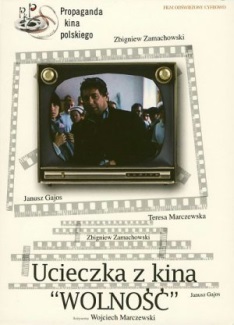 |
Theatrical Release: 15 October 1990 (Poland)
Reviews More Reviews DVD Reviews
DVD Review: Second Run DVD (Polish Cinema Classics Volume 2) - Region 0 - PAL
Big thanks to Eric Cotenas for the Review!
| DVD Box Cover |
|
CLICK to order from: |
| Distribution |
Second Run DVD Region 0 - PAL |
|
| Runtime | 1:27:27 (4% PAL speedup) | |
| Video |
1.85:1 Original Aspect Ratio
16X9 enhanced |
|
|
NOTE: The Vertical axis represents the bits transferred per second. The Horizontal is the time in minutes. |
||
| Bitrate |
|
|
| Audio | Polish Dolby Digital 2.0 mono | |
| Subtitles | English, none | |
| Features |
Release Information: Studio: Second Run DVD Aspect Ratio:
Edition Details: Chapters 12 |
|
| Comments |
Second Run's
high-bitrate, dual-layer, HD-mastered transfer probably looks as
good as this dark and intentionally drab-looking film can (on
wonders how an actual HD master of PURPLE ROSE OF CAIRO
will compare to the clips seen in this film). The Dolby Digital
2.0 track is labeled on the back of the case as stereo, but it
seems to be a very bold monophonic (particularly in the music
passages). The optional English subtitles are excellent, even
finding a way to find an English equivalent of a character's
mispronunciation an another character's attempt to help him
sound out the word correctly. |
DVD Menus
|
|
|
Screen Captures
Subtitle sample
|
|
|
|
|
|
|
|
|
|
|
|
|
|
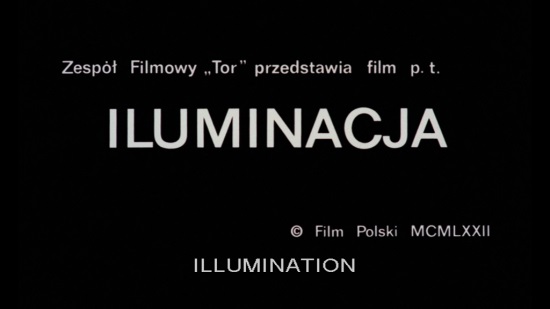
(aka "Illumination" or "Iluminacja" )
directed by Krzysztof Zanussi
Poland 1973
| "Illumination" is the fourth feature
film by Krzysztof anussi, the Polish director whose "Family
Life" was well received at the 1971 New York Film Festival,
but its concerns are those grandly fundamental ones of an
artist's first work. The film devotes itself to the pursuit of life's meaning undertaken by a solemn young university student who opts to major in physics in order to learn "unequivocal things." When the study of physics fails to provide him with answers, Franciszek (Stanislaw Latallo) elects to work in a hospital devoted to neurosurgery. "Why," he asks a doctor friend, "do we invade the soul's material bases?" For a while, Franciszek even contemplates the contemplative life of a hermit in a monastery. At last, just as his own body has physically peaked, shortly before his 30th birthday, a professor tells him there are no absolute truths in any science. There is only the possibility of understanding a little more. |
Poster
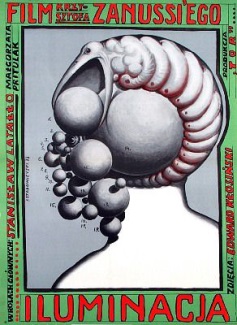 |
Theatrical Release: 23 November 1973 (Poland)
Reviews More Reviews DVD Reviews
DVD Review: Second Run DVD (Polish Cinema Classics Volume 2) - Region 0 - PAL
Big thanks to Eric Cotenas for the Review!
| DVD Box Cover |
|
CLICK to order from: |
| Distribution |
Second Run DVD Region 0 - PAL |
|
| Runtime | 1:28:30 (4% PAL speedup) | |
| Video |
1.66:1 Original Aspect Ratio
16X9 enhanced |
|
|
NOTE: The Vertical axis represents the bits transferred per second. The Horizontal is the time in minutes. |
||
| Bitrate |
|
|
| Audio | Polish Dolby Digital 2.0 mono | |
| Subtitles | English, none | |
| Features |
Release Information: Studio: Second Run DVD Aspect Ratio:
Edition Details: Chapters 12 |
|
| Comments |
Second Run's
high-bitrate, dual-layer encoding of this HD master is gorgeous
to behold with fine detail and gorgeous colors. The Dolby
Digital 2.0 mono track is also striking when it comes to
Wojciech Kilar's score (the optional English subtitles are
error-free and admirably try to translate as much as possible
given how quickly some text inserts flit by). |
DVD Menus
|
|
|
|
|
Screen Captures
Subtitle sample
|
|
|
|
|
|
|
|
|
|
|
|
|
|
| DVD Box Cover |
|
CLICK to order from:
|
| Distribution |
Second Run DVD Region 0 - PAL |
|
![]()
![]()

![]()
![]()
 Search DVDBeaver |
S E A R C H D V D B e a v e r |
